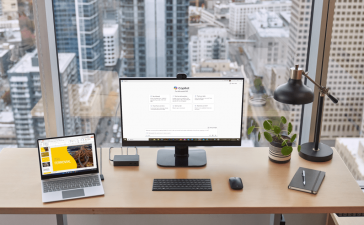Seattle is making sure that some gig workers will be guaranteed rights that have generally only been available to traditional employees. This week, the city’s council passed legislation that requires app-based delivery companies like DoorDash, Uber Eats, and Instacart to provide paid sick time off to workers.
Food delivery workers in Seattle have had these protections for a while — the city council passed the Gig Worker Paid Sick and Safe Time Ordinance in July 2020. However, that law was temporary and was set to expire at the end of April (some parts of it had already gone out of effect in November 2022 when Seattle and Washington as a whole ended their covid states of emergency). The new law, called the App-Based Worker Paid Sick and Safe Time Ordinance, however, should stick around.
Gig workers covered by the law will get one day of paid sick time for “every 30 days with at least one work-related stop in Seattle,” and up to nine days of accrued paid sick time can roll over to the next calendar year. How much they’ll get paid for that “day” will depend on how much they made in an average day during the previous 12 months — there’s a formula used to figure it out.
Workers will also get paid “safe time” they can take when companies suspend services for health or safety reasons, if a family member’s school or place of care closes, or while they’re obtaining services to deal with domestic violence, sexual assault, or stalking.
The local laws protecting gig workers can be complicated, piecemeal, and aren’t necessarily universal
The law will start covering food delivery workers on May 1st and will expand to cover other gig work companies on January 13th, 2024. However, as local NPR affiliate KUOW notes, not all apps and services are covered, citing dog-sitting app Rover as an example. A memo from the city council explains that some apps are exempt because they offer a “marketplace,” and have “less control over the worker or performance of services.” (For example, TaskRabbit tells you what jobs to do but not necessarily how to do them, where Uber Eats gives you specific instructions for each step along the way.)
According to Crosscut and GeekWire, Seattle is the first US city to make these rights permanent for gig workers. This comes as lawmakers and regulators nationwide are trying to figure out what labor rights gig workers should have. Perhaps the most contentious fight is California’s Proposition 22, a law passed in 2020 that let Uber, Lyft, DoorDash, and others classify workers as independent contractors instead of employees. Unions and drivers have challenged the law’s constitutionality in court and plan to appeal a decision that kept it in place.
The US Department of Labor is also in the process of determining whether gig workers should be classified as employees, which could have huge effects on what rights and benefits they’re given by the law.
Unless or until that happens, though, cities and states will likely continue to take piecemeal approaches to regulating how gig workers are treated. Last year, Washington passed similar legislation providing sick leave specifically for rideshare drivers working for companies like Uber and Lyft, and the Seattle city council passed a bill meant to ensure that some gig workers were paid the city’s minimum wage and that gig workers are reimbursed for any mileage they need to complete a job. At the time, council member Andrew Lewis said, “This legislation, by no means, is going to be the final word on this,” according to The Seattle Times. It seems the council is keeping that promise.











